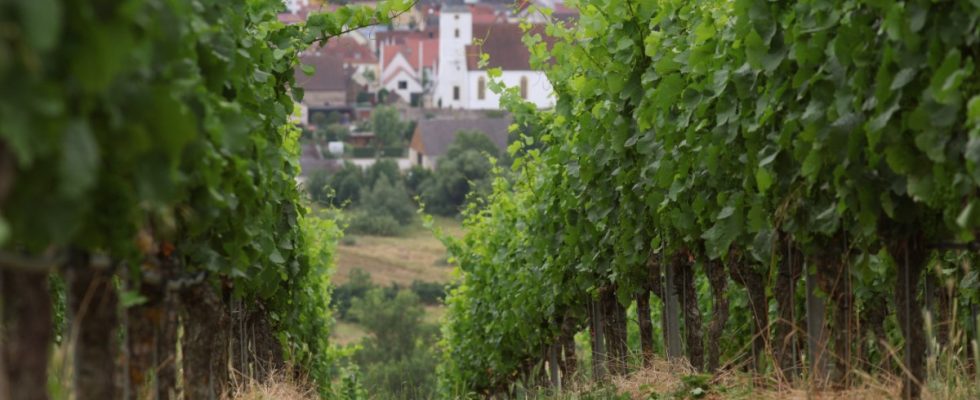Only a fraction of Franconia’s winegrowers can irrigate their vines artificially, regular rain is currently at the top of the wish list. “In general, the precipitation in the Franconian wine-growing region is currently below the long-term average, while the temperature is increasing significantly,” explains the managing director of the Franconian Winegrowers’ Association, Hermann Schmitt, in Würzburg.
A look at the data from the State Office for the Environment shows that the drought index, which reflects the number of days a year on which the plants have too little water, increased by 30 days to 115 days in the Franconian wine-growing area from 2014 to 2018 alone year increased. The long-term average from 1971 to 2000 is 85 days, explains Schmitt.
In hardly any other German wine region is it as hot and dry in summer as in northern Bavaria. While farmers in many places are worried about their yields, according to Schmitt, winegrowers are not yet in the alarm mode. “There are currently no known failures.” However, it is particularly difficult for the plants with young vines, because the plants have not yet rooted as deeply as older vines. But if it stays this dry, yield and quality could drop everywhere.
“The vines reduce their growth due to drought stress,” says Schmitt. “Lack of water during flowering leads to smaller berries and a smaller yield. Long-term drought stress also affects the vines in the following year.” Wine grows on about 6,300 hectares in Franconia – about 5,000 hectares are not irrigated by the winegrowers. The winegrowers’ association recommends drip irrigation for all locations, for example from reservoirs. The system allows little evaporation, saves water and also promotes greening in the vineyard, explains Schmitt. “This is important for biodiversity and protection against erosion, especially on the steep slopes, so that the soil is not washed away during heavy rainfall.”
A hose for drip irrigation is attached to a vine. Franken’s viticulture president Steinmann has long been appealing to winegrowers to deal with the issue of artificial irrigation in view of climate change.
(Photo: Karl-Josef Hildenbrand/dpa)
In view of climate change, Franconian viticulture president Artur Steinmann has long been appealing to winegrowers to deal with the issue of artificial irrigation. The Free State promotes investments in water reservoirs and irrigation systems. Scientists from the University of Würzburg write in their “Climate Report for Lower Franconia” that Bavaria’s main wine-growing region could be 3.8 degrees warmer by the end of the century than in the reference period 1970 to 1999. In addition, less rain in summer and fewer frost days in the winter, they forecast. The gap between rainy and bright to sunny years is widening.
“It rains the least in the Franconian wine country, most often in the low mountain ranges of Spessart and Rhön.” Extreme events such as drought and heavy rain could increase in intensity. “Furthermore, regional vegetation and agriculture are threatened with increasing damage from late frosts and heat.”

